Role of SPMs in Reducing Pain and Inflammation
Chronic inflammation is the most significant challenge holistic practitioners are facing. Inflammation sometimes is stubbornly persistent, even with dietary and Lifestyle changes. One can be stuck in cycle of chronic inflammation and pain. Specialized Pro-Resolving Mediators or SPMs can provide accelerate advantage in reduction of inflammation and pain. It is highly powerful to support cases of metabolic disorder, rheumatoid arthritis, auto-immune disease, cardiovascular, and obesity. SPMs orchestrate the clearance of tissue pathogens, dying cells and debris from the battlefield of chronic inflammation. Here we learn about SPM’s in details, why we are deficient and how can we increase the bioavailability.
What is SPM?
Specialized Pro resolving mediators, also called SPM, represent a part of the Omega 3 fatty acid (EPA and DHA) spectrum. It has a powerful effect on reducing inflammation. SPMs are presenting us with a new tool to regulate the inflammatory process. It can resolve the inflammation effectively without any compromise on the immune system. Moreover, no risky side effects are involved.
SPMs Role and Action
SPM is a super family of lipid mediators that occur naturally. These play a vital role in switching off inflammatory response. However, SPM will not block inflammation in the initial phase because it is a desirable and natural response to infection or injury. After the immune response serves its purpose, SPM comes into play by down regulating the process of resolving the information.
The tissues surrounding the affected area is the space for SPM production. This SPM targets the immune cells that are mediating the immune response. These are bound to the specific Cellular receptors G protein-coupled receptors. SPM can modify the cell behaviour to promote resolution.
Neuropathic pain represents a common and invalidating impairment that undermines the overall quality of life of many patients, for which there is an unmet need of therapeutic treatments especially in the long term. Chronic inflammation represent a very common cause of neuropathic pain, and SPMs are powerful lipid signals that control the resolution of inflammation and prevent many uncontrolled, or prolonged pain.
Many individuals use SPMs for pain relief due to their potent pro-resolving and anti-inflammatory effects. They act on their respective G-protein-coupled receptors in immune cells and nerve cells to normalise pain via regulating inflammatory mediators, transient receptor potential ion channels, and central sensitisation. SPMs modulate the genesis of neuropathic pain by acting on three main targets: i) inhibition of pro-inflammatory signals; ii) inhibition of TRP channels; and iii) modulation of opioid signalling.
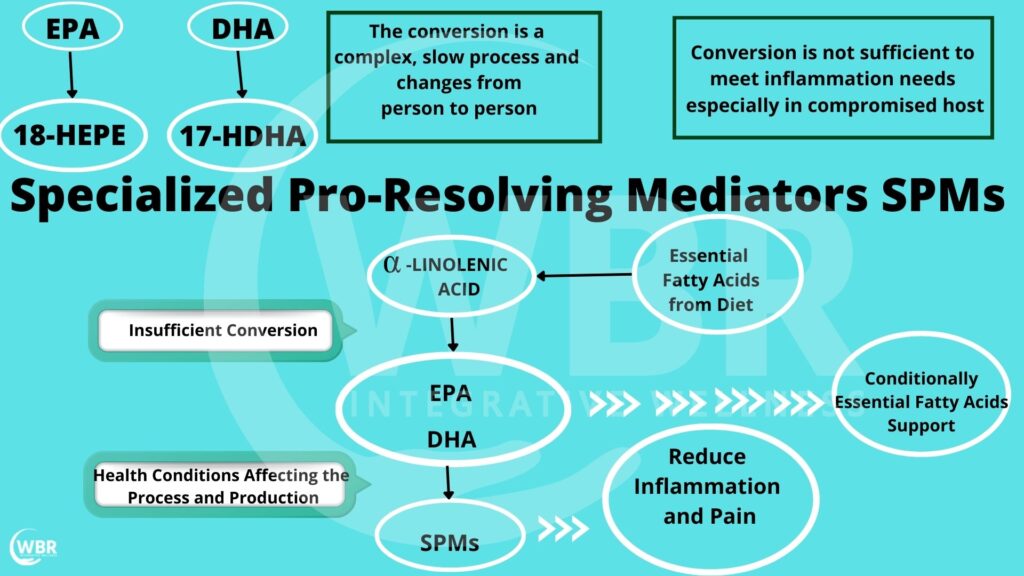
Composition of SPMs
SPMs consist of lipoxins, E-series and D-series resolvins, protectins, lipoxins, and maresins. Individual members of the SPM family serve as agonists at cognate receptors to induce cell-type specific responses. They are derived from Arachidonic acid and Omega-3 fatty acids. Arachidonic acid is well known for its pro-inflammatory metabolite of the Omega 6 fatty acid. However, we must understand that several aspects of immune system function have both push and pull in their place. SPM signals the immune system to stop its response to pro-inflammatory signals. But it accelerates the return to homeostasis.
The role of SPM is unique. It helps the body shut down the immune response, inhibits additional inflammation, clears any damaging by-products of the inflammation, and aids tissue remodelling. SPMs also facilitate the resolution of even prolonged or chronic inflammation. After SPM finishes its job body breaks them naturally and eliminates them.
SPM Food Sources
There are no direct food sources available for SPM. However, the following can help to accelerate SPM production. They are listed in the image.
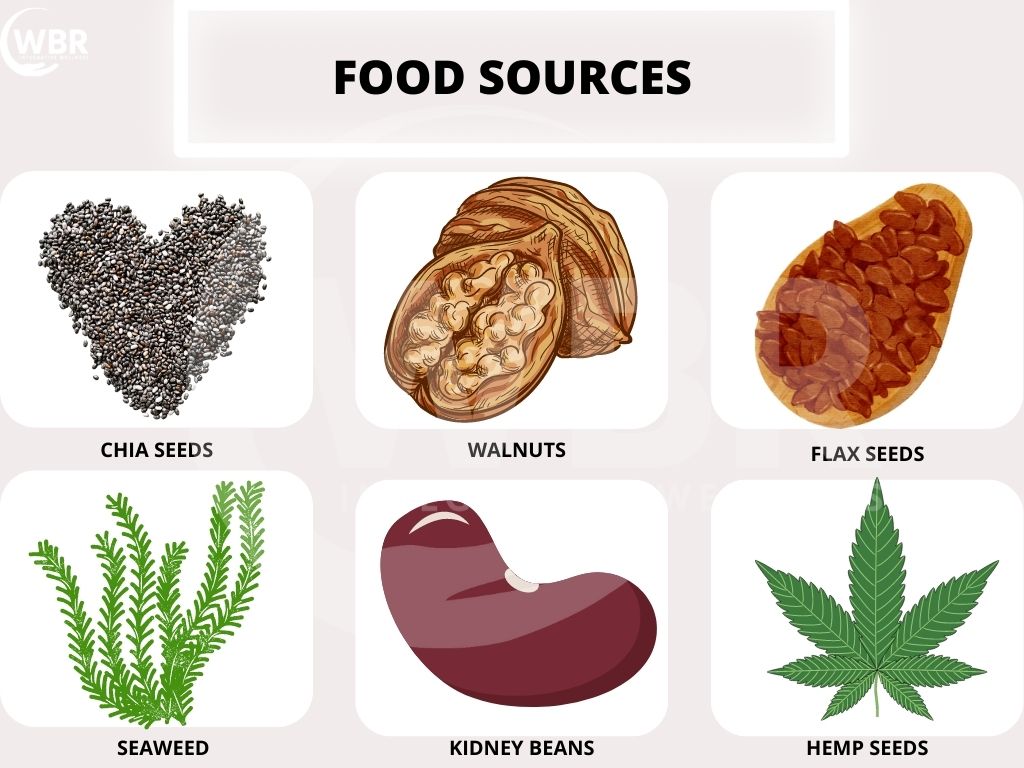
SPM Production
We all thought for decades that EPA and DHA coming from fish oil helps to relieve inflammation by competing with the pro-inflammatory Omega 6 fatty acids. But this is not the whole story. Fish oil probably helps to alleviate inflammation because it provides the raw material for building SPM. SPMs are the result of a multi-step conversion process.
17 HDHA and 18 HEPE are the two SPMs that are carefully studied. Moreover, these two types of SPMs have therapeutic value. However, the conversion process is complex and slow. It is inefficient even for the healthiest individuals. Additionally, there are genetic variations, meaning that some people’s conversion is slower than average.
A healthy individual produces enough SPMs during occasional inflammation following any injury or illness. They help to resolve the inflammation in a timely way. Unfortunately, this is not the case with some severe or ongoing inflammation. When the body cannot produce enough SPM, resolving inflammation will be slow. Hence this may linger on to become chronic. Hear the protective effect of the inflammation transforms into destruction instead. Therefore optimal production of SPM is needed.
SPM production depends on genetic predispositions, good nutrition, and a Healthy lifestyle. Unfortunately, even under the best conditions, these fundamental factors may not be sufficient in helping individuals produce SPM naturally to resolve inflammation.
Though dietary and Lifestyle changes help to improve the SPM endogenous production, they do not have sound effects. We must always remember that ageing is a continuous process and SPM production naturally decreases. Additionally, intake of DHA and even EPA in higher doses may not be sufficient to increase SPM production significantly.
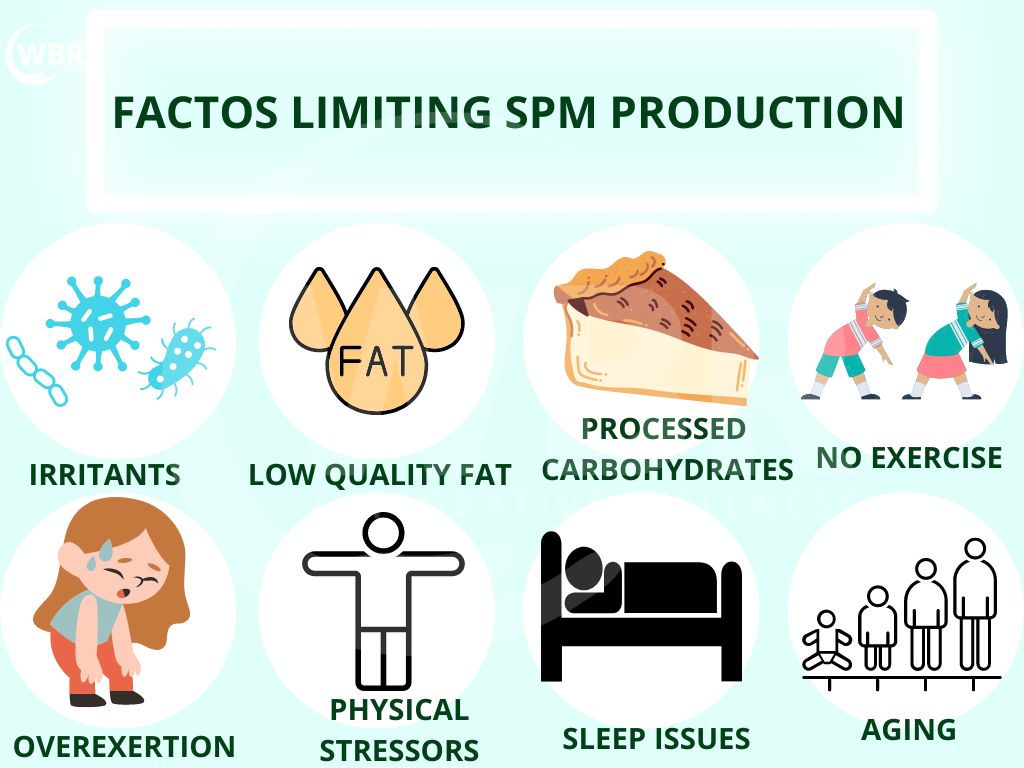
Supplementation Guidelines
-
Resolvins mediators based combinational of 14-HDHA ( 14-Hydroxydocosahexaenoic acid), 17-HDHA (17-Hydroxydocosahexaenoic acid) and 18-HEPE (18-Hydroxyeicosapentaenoic acid ). Dosage as per labels and for period of 12 weeks. This is commercially available.
- Omega 3 (Total EPA + DHA) of 2-3 grams per day split into 2-3 dosage to compliment SPMs action.
Note: Kindly consult your medical practitioners before starting any supplements.
Conclusion
The immune response is natural but can be harmful when left unresolved. Hence SPM helps to reduce pain and inflammation. SPMs are molecules naturally produced by our body in response to challenges. It is a vital component of the natural healing process. Unfortunately, the body may not be able to produce enough SPMs. Obesity, Diet, Lifestyle, and health challenges are affecting SPM production. SPM supplements help a lot to treat different kinds of inflammation and effective in reducing joints pain.
References:
https://www.ncbi.nlm.nih.gov/pmc/articles/PMC6356980/.
https://www.ncbi.nlm.nih.gov/pmc/articles/PMC1074343/
https://www.ncbi.nlm.nih.gov/pmc/articles/PMC5884427/
https://translational-medicine.biomedcentral.com/articles/10.1186/s12967-020-02569-5

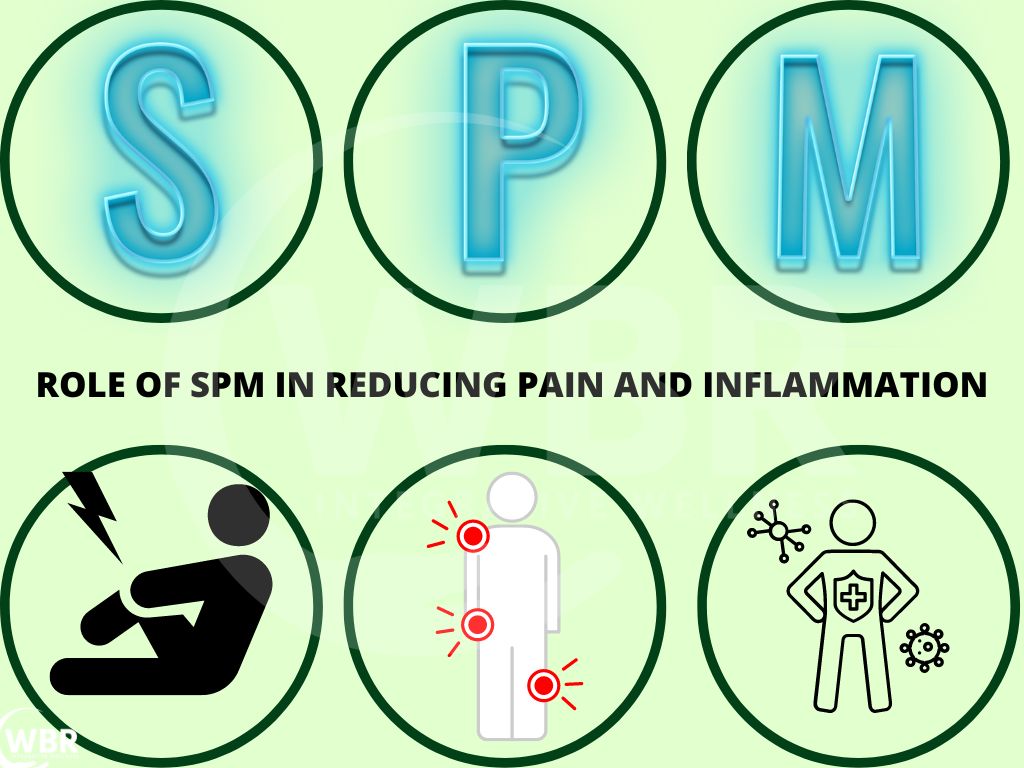

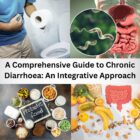

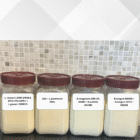
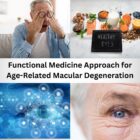



Aruna Tewani
6-Nov-22Always such detailed and good information and knowledge by Roshan!
Thank you so much Roshan!
Wellness By Rosh
7-Nov-22Thanks a lot Aruna for your support and valuable feedback.